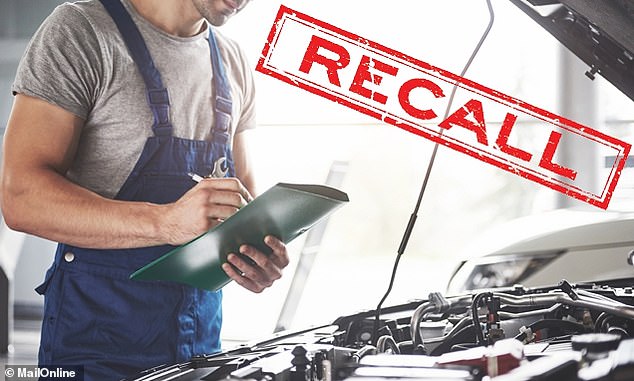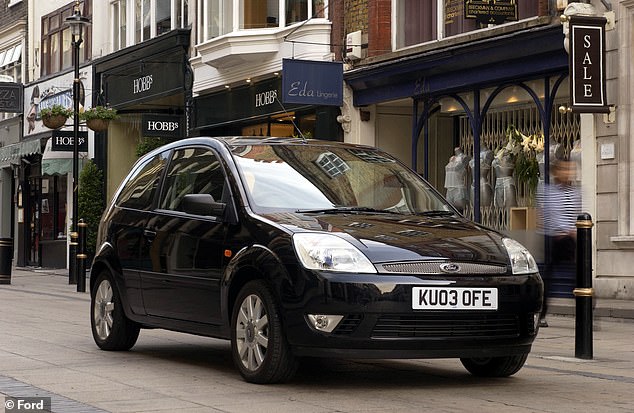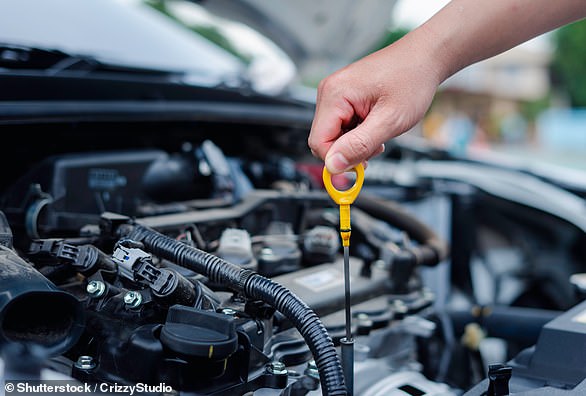Repair costs for your car will rise even HIGHER by 2025, car experts have warned
Cash-strapped motorists are finding it increasingly difficult to cover their car repair costs, according to the Motor Ombudsman’s latest annual survey of car repairers.
The high cost of living, combined with high repair costs due to parts shortages and inflation, forces drivers to make difficult choices to delay maintenance and repairs.
The majority of drivers skipped at least some maintenance and repairs last year to save money, according to the new survey, and even more are expected to do the same this year.
Meanwhile, 56 percent of garages told the Motor Ombudsman they expect motorists will delay crucial repairs to avoid expensive bills this year, as 2025 will bring even higher costs and tougher choices for motorists.
While delaying repairs and maintenance will save money in the short term, in the longer term it can not only increase costs but also put people at risk.
We spoke to auto industry insiders to get a sense of the auto repair climate motorists will face this year.
Cars spend longer in garages due to a lack of trained mechanics, MotorEasy tells This is Money
Why repair costs are increasing in general
In addition to economic pressures and inflation, the Motor Ombudsman points to a few reasons why car repairs are particularly high: the ongoing parts shortage combined with inflationary pressures.
Motoring association MotorEasy also pointed to “supply chain issues” and a “shortage of skilled automotive technicians in garages.”
CEO Duncan McClure noted that “not only is parts availability slowing operations, but the technical aspects of shipping items such as EV batteries, which are hazardous freight, also impact lead times.”
In some cases, these financial pressures and logistical problems mean that higher prices are passed on to motorists.
Warrantywise told This is Money that their ‘data shows that the average cost of repair requests is increasing with inflation (from 2023 to 2024) due to rising parts and labor costs, causing certain manufacturers and parts to incur higher costs.’
Do electric cars increase repair costs?

MotorEasy pointed out that electric cars can cause repair delays and higher costs as many garages cannot yet repair them
MotorEasy explains: ‘Because EV and hybrid technology is evolving so quickly, the solutions are often not fully documented or widely understood.
‘This often means referring repairs to the manufacturer’s main dealers, rather than to traditionally more cost-effective independent garages.
‘Costs are rising even further as manufacturers’ dealers appear more likely to replace entire units rather than repair parts. This in turn is associated with further delays and uncertainties where battery replacement will require shipping as hazardous cargo.”
Why is 2025 expected to become even more expensive for car owners?
About 52 percent of garages expect repair costs to rise due to ongoing parts shortages and inflation, meaning financial pressure on hardworking families will increase.
Although most garages will likely have to pass some of the costs on to customers, many try to absorb the costs as much as possible.
In fact, 42 percent of businesses told the Motor Ombudsman that they are committed to meeting these increased expenses to help protect consumers’ bank accounts.
Roger Griggs, communications director at Kwik Fit confirmed this to us, saying: ‘Like any other sector, the car repair sector has been hit by inflation, but we are supporting customers by absorbing increases where we can.’
Do motorists avoid having their cars repaired?

By delaying maintenance, car owners may face worsening mechanical problems that require more expensive repairs and a greater risk of breakdown
Avoiding high repair costs can have serious long-term consequences.
In 2024, 53 percent of companies reported that customers were not doing routine car maintenance, such as service, to save money.
Kwik Fit found that their research ‘reflected the themes of the Motor Ombudsman report’ and that ‘the economic climate had influenced the planned car spending of more than half of all motorists.’
Kwik Fit found, among other things, cost-saving measures; ‘postponing the purchase of a newer model, cutting back on maintenance or switching to cheaper replacement parts.’
Garage owner and star of TV series Dave’s Repair Lot, Hannah Gordon, told This is Money: ‘We have noticed a reduction in the number of people having repairs carried out. To save money, they often ask for the bare minimum of repairs just to get their vehicle through its MOT or back on the road.”

Hannah Gordon says: ‘To save money, people will often ask for the bare minimum of repairs just to get their vehicle through its MOT or back on the road’
Not only could delays lead to significantly higher costs down the road, the Motor Ombudsman warns, but it could also put vehicle owners and their occupants, as well as others, at risk.
Delaying maintenance can leave car owners with complicated mechanical problems that require more expensive repairs, lower fuel economy leading to higher operating costs, coupled with an increased risk of breakdowns, potentially resulting in expensive emergency repairs and towing costs.
The RAC has found that it is ‘unsurprisingly the youngest motorists’ who are ‘worst affected’, with 26 per cent of people aged 17 to 24 surveyed last year telling the RAC they had deliberately put off paying for vehicle repairs because of the costs life crisis.
Some drivers even go further than just delay: 28 percent of repairers expect customers to leave their cars at garages if the work becomes too expensive or if repairing the car proves unprofitable.
However, Warrantywise told us that, “while we don’t see rising prices deterring our customers from maintaining their vehicles, we do see them spending more carefully.”
Are motorists keeping their cars longer because of rising costs?

68% of garages say that customers tend to keep existing cars for longer to avoid paying for a newer model, but this is not always a good idea. Experts warn
The Motor Ombudsman’s investigation has shown that motorists keep their cars longer due to economic pressure.
In a sign of the times, 68 percent of garages say customers tend to keep existing cars for longer.
For many, waiving the cost of newer or more expensive models may seem like a sensible financial measure, but this also makes maintaining an older vehicle crucial – to avoid unwanted breakdowns, broken parts and higher bills.
The continuing trend of expensive car repairs
This time last year, This is Money reported that 2023 was a record-breaking year for car repairs.
“Repair costs increased by 32 percent in the third quarter of 2023 to a quarterly record £1.6 billion,” a spokesperson for the Association of British Insurers confirmed.
Rising operational costs, taxes and energy are the three biggest factors, with increased spare parts costs and staff shortages rounding out the top five.
Hannah Gordon said: ‘The automotive sector, like all other sectors, is struggling with rising costs due to materials, utilities and labor costs.’
Do high repair costs increase insurance premiums?
Vehicle repairs require large amounts of electricity, and unlike households, businesses are not entitled to government support.
For example, gas and electricity bills for car repairers will increase by as much as 300 percent by 2023, with garages paying full price.
The average energy costs per repair were €70.
Not all of this can be absorbed by insurers, so it is passed on to consumers in the form of higher premiums.
Some links in this article may be affiliate links. If you click on it, we may earn a small commission. That helps us fund This Is Money and keep it free to use. We do not write articles to promote products. We do not allow a commercial relationship to compromise our editorial independence.


